BEHIND THE IRON CURTAIN
★ ★ ★ ★
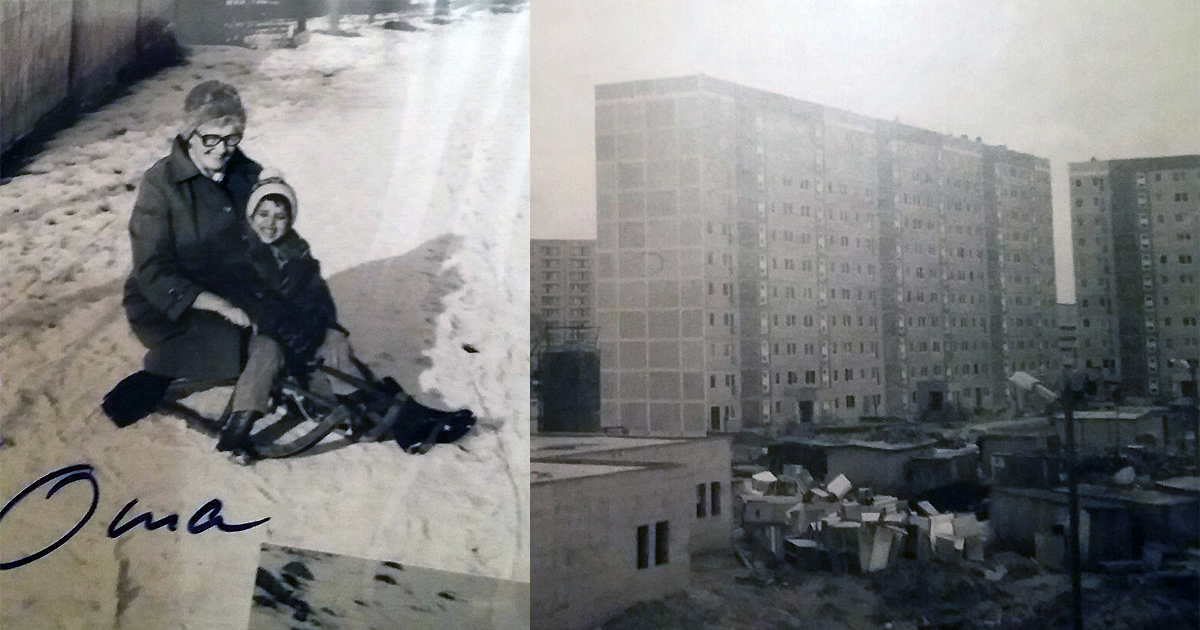
By AnaRey Helmy
I grew up in a country that no longer exists. A country ruled by established elites that were eventually overthrown by their own people in the fall of 1989. In what is known to be one of the very few peaceful and blood-free revolutions in human history.
The first thirteen years of my life I lived in a historical footnote. It is so easy to downsize the relevance of an entire nation now, looking back. Since perspective depends on many factors, one of them being time. In the summer of 1989 no one in their right mind would have called the GDR, the German Democratic Republic, a mere appendix state. The Nation of East Germany mattered. Politically it mattered to the world.
I was one of 16 million citizens. There are more people living in New York, City and State. But while numbers alone indicate little, to most of the other 5 billion people populating Earth in the late 1980s, life in the GDR was one big secret. Yes, secrets. The best being the ones of others, the worst being the ones you even keep from yourself. And while a peek at life behind the iron curtain might be a charming read, a nostalgic touristy tour, a flying visit or safe time travel—for many that life was hell.
But when you are a kid and your basic needs are given—when you are loved, fed, safe and you are free to behave according to your age—life is good. Yes, the strong Christian background of my family caused a lot of discrimination against us. The fact that my mother was a single parent and my father not in the picture, on top of not even being from Germany (my looks gave that one away) caused hardship and pain. My mother was spied on. She secretly planned to leave the country. Life for her was very intense. But the beautiful thing about childhood is the natural ability of young minds to focus on the little things and be in the moment. The beautiful thing about my childhood was exactly that, and my grandmother.
My Oma Anna, I carry her name. Oma means grandma in German and Anna is the second most common name for women in the world, outperformed on the ballots of labeling identity only by Maria. But with all the Annas around, mine was one of a kind, with kind being the word to best sum up her spirit.
Her house, the home of my childhood, was built by her family. Her father Ernst Weishaupt, a tall and lean, sophisticated man who worked numbers for town-hall; her mother Berta, a farmer’s daughter by figure and heart, who got a kick out of solving mathematical problems in the little leisure time she had in her life. Both somehow lived through two World Wars and kept their faith and diligence along with their humanity. Their two daughters, Anna and Elise got married and helped to build this home alongside their spouses. This is where they raised their own kids and when I came into the picture, four generations lived under one roof.
Their house was built upon a small hill. To the rear overlooking a beautiful sloping garden, dominated by neatly arranged sets of rectangular plots, growing a variety of vegetables. The plots were sidelined by small pathways bordering green perfectly trimmed grass that grew a set of delicious apple trees and one single plum in the rear. Along the fences to the left and right were sets of red and blackcurrants along with some gooseberry bushes standing as guards of honor to all this beauty. Beyond the back fence the view opened to a wild and grassy hill that grew a couple of houses at the bottom that trickled down into town. From the upstairs windows of their home, you overlooked a picturesque provincial town dating back to the year 874 A.D.—my hometown, Schmalkalden. Its historical center, snuggled into the heart of valley, was dominated by beautiful lattice and half-timbered houses so old that they leaned in on each other in dependence. The Appalachian-like mountains of the beautiful Thuringian countryside were all around. But of course it was the East and thus this beauty was surrounded by state-of-the-art concrete housing blocks that sat in rows back-to-back in identical style, all of them six stories high to house the backbone of our country—the growing workforce.
In third grade we had a school project in preparation for Labor Day. The day of the working class being a national holiday of heightened importance in all socialist countries. Come May 1st the entire nation was obliged to take part in huge parades. And as it tends to be, folk in rural areas have a knack for obedience and down to the smallest village the Socialist Unity Party of Germany had everyone parading in style. Our class was supposed to draw sunflowers. So I went to sit in my Grandmother’s garden to observe and draw a version of a live and beautiful follower of the sun. My teacher chastised me for it. I had failed to draw the leaf in geometrical perfection. How to cut out this real thing, this individualist, in order to glue it on a stick and carry it in the parade? I had failed my country, she said.
A school is a learning institution but it is just as much a place where children are instructed in the ways of good citizenship. Schools traditionally play a part in aligning young people in accordance to their respective society, whether it be free or repressive. I learned Algebra, by adding tanks or grenades like apples and oranges (with the latter being a rather scarce commodity). The possibilities of a cold war turning hot had an influence on everyone in the GDR, including schoolchildren. I learned how to march military style, how to roll call, and pledge my allegiance to the free people of our country, all before turning teenager. Heck, I even learned how to throw grenades, though luckily they were fake.
Besides all that, it was mandatory for pupils to regularly take part in what was called the “Wehrunterricht”, a type of pre-military instruction taught in the classroom and practiced in what can easily be described as a reenactment of war. They dressed us as wounded soldiers—uniforms, fake blood and all. Other kids played paramedics, carrying the hurt who had fallen out of the supposedly burning (school) building. Sometimes these rehearsals would even involve real gas masks. Mind you, manipulation of the young was certainly not invented by the GDR. My grandma Anna had been taught all the assets of the Third Reich while she was in school. Thank God, she was a thoroughbred Christian with a firm moral compass. The system always starts young.
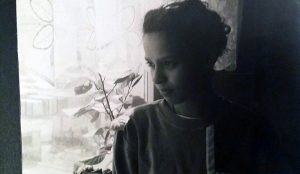
In 1987 my mother and I moved to Berlin, the capital of East Germany. It was here she had met my father some 10 years and 9 months prior. She, a student of agricultural science at Humboldt University—he, everything her hometown did not offer. My father left the picture way before I was born, so my mother moved back to her small hometown to have me and get some family support. My father reappeared in my life, but long after the Wall had come down. We had the chance to make our peace, before the effects of lifelong alcohol abuse took his life.
Our first year in East Berlin my mother and I lived on the fifth floor of a traditional Art Nouveau building that had survived the bombs and fires and the terrors of war. And like all the other survivors, it had seen all the horrors and its stucco had turned an ugly shade of greyish brown. The dominating hue of the East, most western tourists might have said. To me, East Berlin (the only Berlin in my mindset) was all sparkles. It pulsated with what seemed like modern life to me. Living in the capital somehow made me feel closer to the big wide world. So bubbly. If there had been a river running right under our window, that would have made for an almost complete list of transportation systems available in the late 1980s. Our corner had it all. Cars, buses, trams, the underground (running above ground here) and even airplanes flying by. We lived right on Eberswalderstrasse, near Kastanienallee. Today, this is the place to be, located in a hip upscale area called Prenzlauer Berg. I am talking organic food markets, beard barbers and sky-rocketing property prices. It’s like the new spots in Brooklyn to a true New Yorker. It’s like not even recognizing your hometown. Now, it is. In 1986 this place was different, entirely.
For one, our street was a dead end. Yes, with all the lively loudness going on at one corner, this street came to a sudden stop behind a soft bend at its other end. And it is certainly no long street, google maps claims 450 meters in total. But nevertheless, back then it came to an end at the Berlin Wall. This Inner German Border, this thing that divided a country, a city and one people. That dreadful wall. The actual thing was far more than a simple barrier, it was a death zone. A wide array of high concrete partitions, electric fences, mined muddiness, sometimes spring guns and guard towers overlooking a nothingness, that raked through the heart of Berlin like one big open wound.
Our street changed names right on the western side of things. They called it Bernauerstrasse and still do so today. It was here you could cross the border in the months following the events of November 9th 1989. Two years earlier, you could not even get close enough to have a good look at the mess. For Judo class I regularly walked to Eberswalderstrasse number 10. Nine houses to go, but no further. The border police would approach you, start asking questions of whereabouts and certainly, continuing onwards was no option. Even for kids. But all of it—all this—seemed not one bit disturbing to me. I was way more worried about my coach letting me fight an orange belt, when I had not even earned my yellow yet. Perspective, again. My mother must have had different feelings. We never talked about it. I soon quit Judo.
Our first home in Berlin had high ceilings and no bathroom. No worries, we showered. It just happened that our shower was a basic plastic cabinet that stoutly stood in a corner of our kitchen. A movable device dominated by curtains, pretty handy but certainly out of style now. Such shower cabinets were a common thing in these old buildings. After all, the late 19th century workforce knew little about bourgeois affluence. They cleaned in sinks or bathhouses. We lived on the fifth floor, and every week my mother had to carry the coals up those many flights of stairs. Stove heating, one thing that gets romanticized these days. I will spare the details about sharing toilets halfway up the staircases. Just know, these Wilhelminian style buildings are beauties today, and everyone wants in. But in the late 1980s, everyone in their right mind wanted out. Me and my mother being no exception.
With comfort as bait, we gladly traded the old place for an assigned 3-bedroom in the concrete jungle. This newly developed area on the outskirts of town turned out to be quite another thing altogether. First off, I realized the six storied, neatly-aligned buildings in my town in beautiful Thuringia turned out to be quite a homely sight. These concrete suckers here rose up to eighteen stories high and stretched over miles and miles and miles. The trees planted were mere sticks in an earthy ground. For one year I watched them reach for the sun, then my life changed drastically.
Exactly twenty-nine days following my 13th birthday, the Wall came crumbling down. On November 9th 1989, life for me and every single person in my home country changed forever. No one, no foreign affairs experts, no cold war strategists, and certainly no politicians had seen this coming. Not in the East. Not in the West. This Wall, that had circumscribed the former Soviet sector, that had divided one people for 28 and almost one half year—this Wall was torn down by the people it had claimed to protect.
An exodus had taken place that summer of 1989. Thousands fled my country. And as this drain of people had the elites worried but never shaken, many others hoped for change. Protesters, first a couple of hundreds, soon in their thousands, filled the streets—in what is known as the iconic Monday Demonstrations. It started in the city of Leipzig and took the streets all over the country. People in their millions, peaceful protests, focusing on free and fair elections. On changes on the political elitist level. But still, no one foresaw what happened on November 9th. You can read all the details in books, or simply on Wikipedia. By pure chance, some personal decisions this day went down in history. In the end, it was one thing, and one thing only that took down this wall—the will of the people of my home country.
Eventually, life changed dramatically. All I had ever known was suddenly too socialist, too old, too repressive, too wrong. A stigma that stuck to a time and everyone in it. Again, lucky me, I never looked like my East-German peers—my dad is Somali—so for once a stigma passed me by.
But still, there was nothing left around to remind me of my childhood. Cars changed, homes changed, butter changed. Transition for me felt like walking into candy land. But it certainly did not feel this easy for all. Many parents lost their jobs. Many people felt betrayed. Even to this day, many linger in a glorious past. I always felt fortunate. And first chance I got, I went to see the world. After all, we were all now free to travel. But freedom does have a price, unless you are simply born into it.
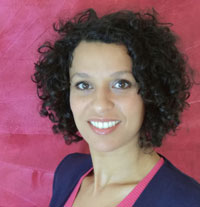
AnaRey Helmy is a journalist and film critic. She was born in East Germany in 1976 with Somali-German roots. She was raised in East Berlin. She was an athlete from a young age and as highschool exchange student became the Virginia State champion in the mile and the 4×400 metes. She studied at the University of Pittsburgh on an athletics scholarship. She went on to get a BA in communications and political studies. She is one of the founding members of the female rap band, Jeneez. She is married with two children and lives in Berlin, Germany.


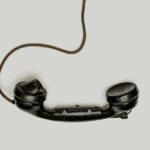
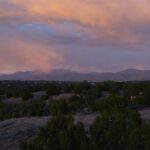





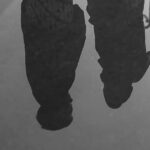








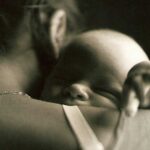





Trackbacks/Pingbacks